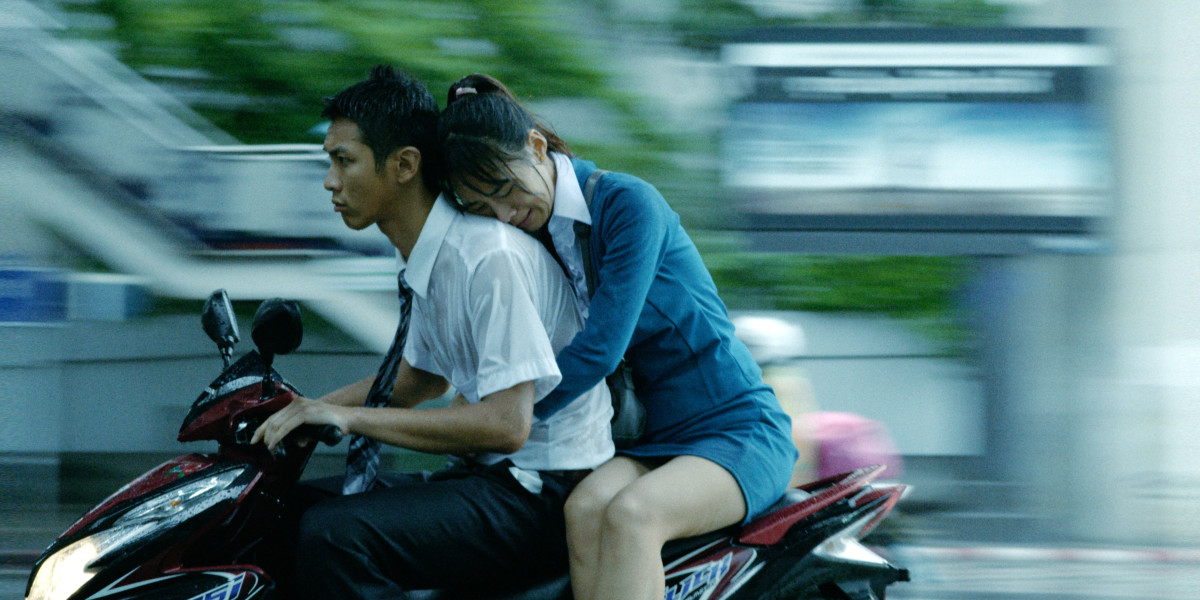Saturday, 30 September 2017
Fellow travellers: "The Road to Mandalay"
The Road to Mandalay is another of the cinema's recent travellers' tales, although the migrants it presents us with are - unlike those in predecessors In This World and The Golden Dream - headed East, from impoverished, troubled Burma to the notionally more stable Thailand. In an unprecedented move for this mini-genre, it begins with what, in less parlous, straitened circumstances, might be taken for a meet-cute: Guo (Kai Ko), a tall, chivalrous fellow, volunteers to take the cramped space in the boot of a car set to cross the border so that Lianqing (Ke-xi Wu), to whom the space had originally been assigned, might sit upfront. For the writer-director Midi Z, the journey - completed without any of the usual obstacles - is of less import than the pair's destination, and the brutally harsh realities of life in a foreign land without the official papers: the long hours of menial work for modest reward, the sense of being at the mercy of others, the cramped lodgings, the slow drive to the end of one's tether. Love, in this climate, is a tragically expendable luxury.
Set against its epic predecessors in this field, Mandalay initially feels a shade low-key, so determined not to appear sensational or sentimental that it risks not seeming dramatic. Its approach is basically observational, vérité-like, each modest sequence nudging us towards a greater understanding of how the system now works in this part of the world: the police making a big show of busting illegal workers so that their bosses can show up at the station the next morning with the bribes to buy them back, our fellow travellers finding themselves having to look out for one another, because this tentative connection is just about all the two of them have got. There's a lovely scene in which, sleeping side-by-side one night in separate beds, their hands initiate a speculative ballet - and we're reminded that immigration in the vast majority of cases is a hopeful reaching-out, for stability, affection, a brighter future.
By far the film's strongest suit, however, is the central performance by Wu, whose air of gauche eagerness - her upright attention whenever she enters the frame, or someone is talking to her - is exactly right for the role: you would swear the performer herself were relying on her appearance in the film to provide her with the right papers, and determined to work every hour of the day or night to receive them. Much of that optimism gets squashed in a final movement that didn't quite work for me: you can feel the filmmaker wanting to impose himself here, rather than trusting in the cumulative impact of what's gone before, and the result is a logical conclusion - in the context of survival-of-the-fittest capitalism - but not an especially satisfying one. Still, it's very rare, watching a modern-day movie, that you feel you're seeing characters who would otherwise go undocumented, in art as in life: Z's quietly attentive, supremely empathetic camera goes the extra mile to ensure the struggles of his protagonists are positioned front and centre throughout.
The Road to Mandalay is now playing in selected cinemas.
Subscribe to:
Post Comments (Atom)

No comments:
Post a Comment